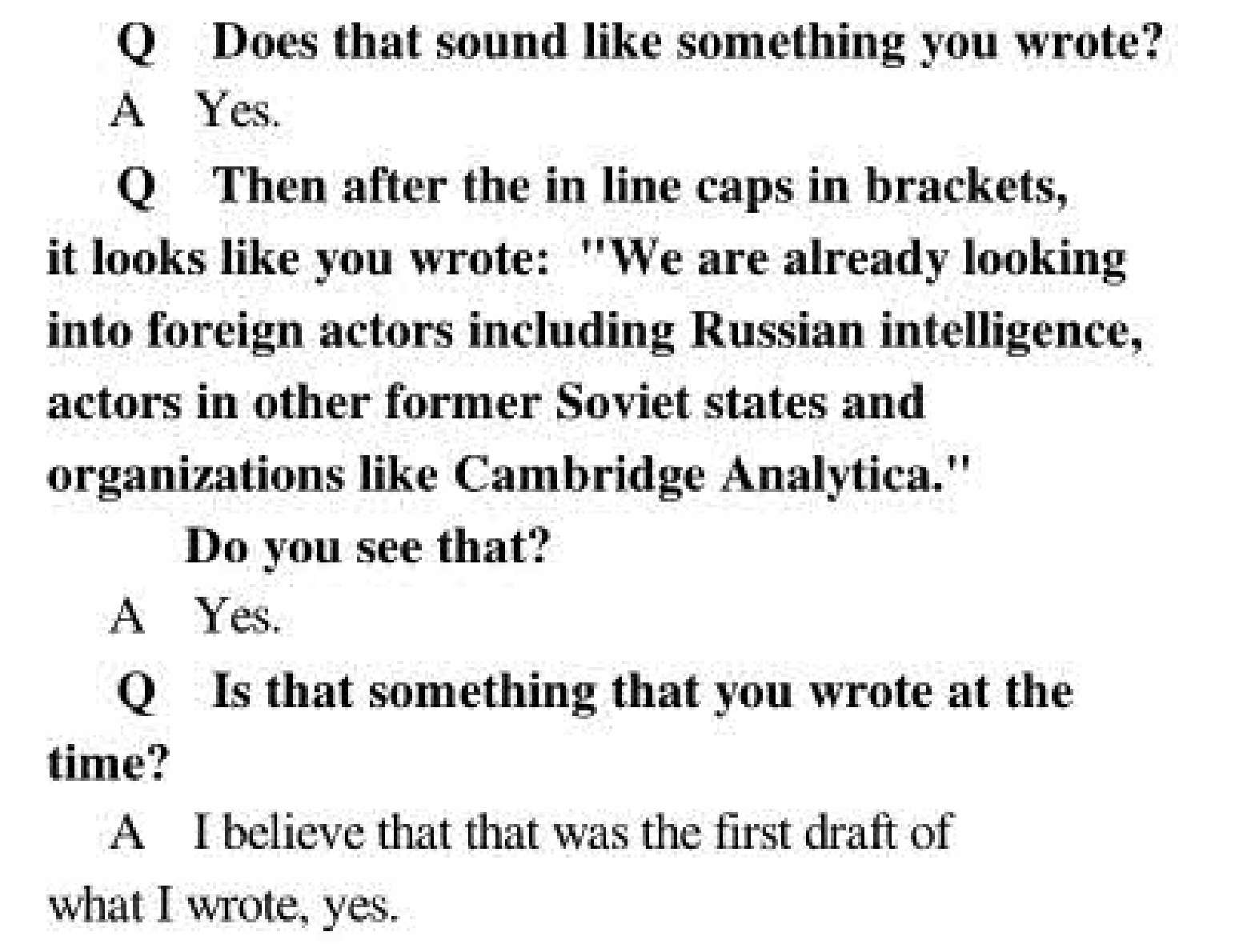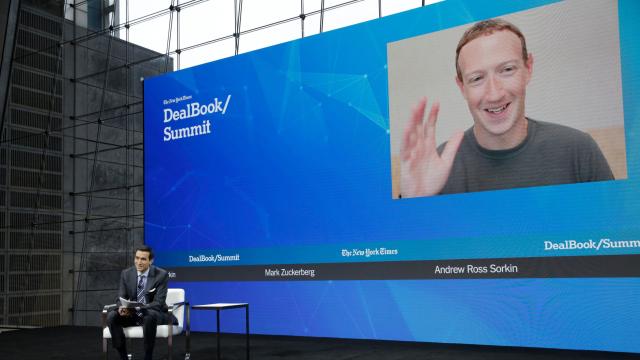One question that has long lingered among those involved in Facebook’s Cambridge Analytica scandal is: when did top company execs know about the UK company building psychological profiles of U.S. users, and why did they take so long to do something about it?
Zamaan Qureshi, an American University student and tech policy wonk, submitted a Freedom of Information Act request to the Securities and Exchange Commission and received sworn testimony from Meta CEO Mark Zuckerberg from 2019. The document reveals that back in 2017, Zuckerberg had originally considered reporting in a speech that his company, then just called Facebook, was looking into details about Cambridge Analytica. It contradicts testimony Zuckerberg gave in front of Congress and may add more fuel to the fire of ongoing lawsuits.
For those who need a refresher, in the late 2010s Meta came under fire for sharing tens of millions of users’ personal information with the British political consulting company Cambridge Analytica. The company allegedly used this data to construct psychological profiles of U.S. voters to help the presidential campaign of Sen. Ted Cruz during the 2016 election and later former President Donald Trump.
Zuckerberg’s SEC deposition first mentions a series of articles from Motherboard culminating in a bombshell report published in January, 2017. When asked if that was the first time he heard about Cambridge Analytica, the CEO replied:
“my guess is I heard of them before. And that this was after seeing a couple of mentions of what they were claiming to do, I wanted to ask people who I trusted what their assessment was.”
The document reveals a different timeline of events than what Zuckerberg used in testimony made in front of Congress back in 2019. In response to questions about when he knew something was strange with Cambridge Analytica, Zuckerberg responded:
“I’m not sure the exact time, but it was probably around the time when it became public, I think it was around March of 2018. I could be wrong.”
The questions by New York Rep. Alexandria Ocasio Cortez further grilled Zuckerberg on when any of his leadership team became aware of Cambridge Analytica, especially since there were reports from The Guardian dating back to 2015. The Meta CEO said “I’m sure some folks were tracking it internally,” then he revised his earlier statement saying “I do think I was aware of Cambridge Analytica as an entity earlier, I just don’t know if I was tracking how they were using Facebook specifically.”
The deposition also notes that Zuckerberg had originally intended to tell Facebook users they were looking into Cambridge Analytica as early as 2017. In a 2017 speech Zucerberg made to Facebook users regarding allegations of Russian misinformation and election meddling campaigns, the Facebook CEO said:
“We will continue our investigation into what happened on Facebook in this election. We may find more, and if we do, we will continue to work with the government. We are looking into foreign actors, including additional Russian groups and other former Soviet states, as well as organisations like the campaigns, to further our understanding of how they used our tools. These investigations will take some time, but we will continue our thorough review.”
However, according to the document, an earlier draft of that same speech said:
“We are already looking into foreign actors including Russian intelligence actors in other Soviet states and organisations like Cambridge Analytica.”

Zuckerberg did claim he didn’t know about Facebook’s political advertising team raising concerns about Cambridge Analytica before The Guardian’s 2015 article. However, Facebook didn’t ban the UK political consulting firm even after that report came out, something Zuckerberg called “a mistake,” adding his company “didn’t connect the dots.” What dots the company should have connected were unfortunately redacted from the document.
There are two ongoing lawsuits centered around Cambridge Analytica. One lawsuit on behalf of shareholders in Delaware alleges the company had failed to protect users’ privacy. Earlier this year, court documents showed Meta had agreed to settle the class action lawsuit filed on behalf of Facebook users alleging consumer fraud and neglect. Some reporters deep into the Cambridge Analytica scandal noted it might have been an effort to stop Zuckerberg from being deposed.
In an email statement, a Meta spokesperson told Gizmodo “This has been a settled case for over three years.” The company also linked to a 2019 agreement the company made with the Federal Trade Commission where the company agreed to pay a $US5 ($7) billion penalty.
Qureshi is a policy advisor for The Real Facebook Oversight Board, an unaffiliated advocacy group formed as the kind of antithesis to Meta’s own — somewhat independent — Oversight Board.
